Tokuma Shoten
World-recognized poet Ryoichi Wago’s anthology collection of poems centering on his masterpiece “Utsu no Reki,” written while suffering from the Great East Japan Earthquake, becomes the second Japanese poet to be nominated as a finalist for the American Translation Award. ! Nominations on Friday, September 13th Japan time
……
Poetry collection “Poetry Grass” continues in France and attracts attention from the American literary world!
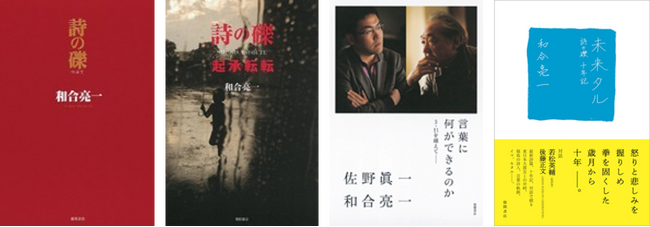
Tokuma Shoten Co., Ltd. (Shinagawa-ku, Tokyo, Representative Director: Hideyuki Komiya) has already published a collection of poems by poet Ryoichi Wago, “Poetry Reki”, “Poetry Reki Kishotenten”, “What Can Words Do”? The translation anthology “WAGO RYOICHI / SINCE FUKUSHIMA”, which is composed mainly of works included in
“Miraital”, won the “Lucien Strike Asian Translation Award” selected by the American Literary Translators Association on September 12th (local time in the United States). was nominated as a finalist. Written by Ryoichi Wago (both published by Tokuma Shoten)
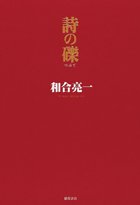
“Poetry Gravel”
List price: 1,540 yen (tax included)
Format/number of pages: 46/264 pages
Publication year: June 2011
[Amazon] https://www.amazon.co.jp/dp/419863193X
[Rakuten Books] https://x.gd/a0mpN
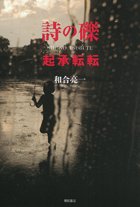
“Poetry Gravel: Beginning, Development, Turning”
List price: 1,540 yen (tax included)
Format/number of pages: 46/280 pages
Publication year: March 2013
[Amazon] https://www.amazon.co.jp/dp/4198635765
[Rakuten Books] https://x.gd/9dEuw
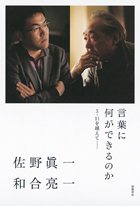
“What can words do?”
List price: 1,650 yen (tax included)
Format/number of pages: 46/256 pages
Publication year: March 2012
[Amazon] https://www.amazon.co.jp/dp/4198633673
[Rakuten Books] https://x.gd/I8zYT
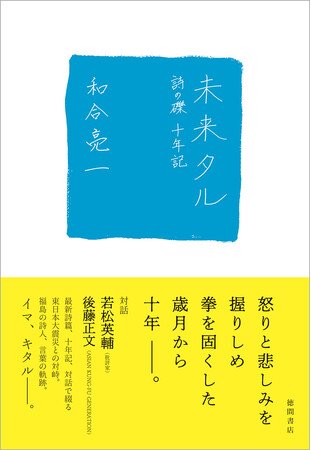
“Future Tal”
List price: 2,420 yen (tax included)
Format/number of pages: 46/224 pages
Publication year: March 2021
[Amazon] https://www.amazon.co.jp/dp/4198652503
[Rakuten Books] https://x.gd/VDUGx
About the Lucian Strike Asian Translation Award
The Lucien Stryk Asian Translation Award is one of the translation awards selected by the American Literary Translators Association, and is named after Lucien Stryk (1924-2013), an American poet and translator of Zen literature. It’s named after. In addition to translating Zen literature, Strike is also known as a translator of Basho, haiku, and Shinkichi Takahashi. In addition to the translation of Zen scriptures and poetry related to Zen, the application conditions for this award include translations of contemporary works, first translations or first translations of important classics and old works, published in the previous year, and published in the place of publication. However, the work must have been translated into English from Chinese, Hindi, Japanese, Kannada, Korean, Sanskrit, Tamil, Thai, or Vietnamese. Regarding translations, in addition to the literary importance of the original text, the selection criteria is the degree of completion of the translation that recreates the literary artistry of the original text.
This award began in 2010, and recent award-winning works include a collection of poems by evacuees from the Tang Dynasty, translations of works by modern Korean female poets, and translations of 9th century Tamil literature. The only award-winning work translated from Japanese into English is the 2016 complete collection of translated poems by modernist female poet Chika Sagawa (1911-1936), translated by Sawako Nakayasu (Japanese American resident).
The awards will be announced on October 26th and 27th at the main reception venue of the annual convention of the American Literary Translators Association, which will be held in Milwaukee, Viscon. Reason for nomination
“WAGO RYOICHI / SINCE FUKUSHIMA” (VAGAVOND PRESS) has been selected as a finalist for 2024. This book is a collection of translated poems by Ryoichi Wago, one of Japan’s leading contemporary poets, written from immediately after the Great East Japan Earthquake until 2021. Wago’s works focus on the environment devastated by the Great East Japan Earthquake, the tsunami, and the Fukushima Daiichi Nuclear Power Plant accident, and the relationships between animals and humans.In addition to a high level of poetic technique, Wago’s works also incorporate new works based on Japanese literary tradition. It contributes to the creation of poetry. As a translator, I thought of Wago’s works as Japanese environmental poetry and wanted them to be widely known by people overseas. Co-translator Mr. Haleski is a poet, translator, and researcher of Japanese literature, particularly Matsuo Basho, Noh, and dance. In other words, it was a joint translation by a researcher of American literature and a researcher of Japanese literature. Contents of anthology poetry collection “WAGO RYOICHI / SINCE FUKUSHIMA”
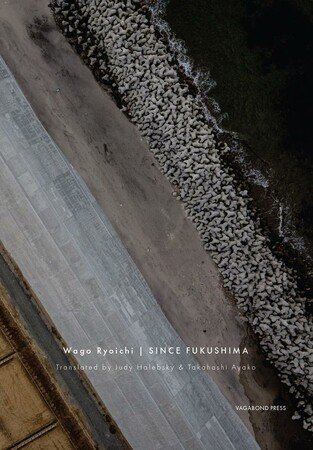
This book includes the poetry collection “Shi no Reki” (Tokuma Shoten, 2011), “What can words do?” (co-authored with Shinichi Sano, 2012), and “Poetry Reki Kishotenten” (Shi no Reki, 2012). 2013), “Miraitar” (2021), “Encounter of Poetry” (Asahi Publishing, 2011), “Futatabi no Spring” (Shodensha, 2012), and a collection of contemporary poems “Decommissioning Psalms” (Shichosha)・2013), “Ryoichi Zokuwago Poetry Collection” (Shichōsha, 2018), “QQQ” (Shichōsha, 2019), and “transit” (Nanarokusha, 2021) are included. At the end of the book, there is a conversation with Brenda Hillman, one of America’s leading poets. This conversation was recorded on January 3, 2019 at Hillman’s home in Berkeley, California. It was carried out by Wago, Hillman, and co-translators Haleski and Takahashi. In a conversation between Ryoichi Wago, one of Japan’s leading environmental poets, and Brenda Hillman, the following two points were raised. Firstly, I will discuss the environmental pollution caused by the Fukushima Daiichi Nuclear Power Plant and his subsequent works, and secondly, how poets and poetry relate to environmental pollution and social justice. In the conversation, Mr. Wago talked about the importance of poetry being able to move people’s hearts, and Mr. Hillman talked about the relevance of poetry to politics and social justice movements.
Comment from Ryoichi Wago
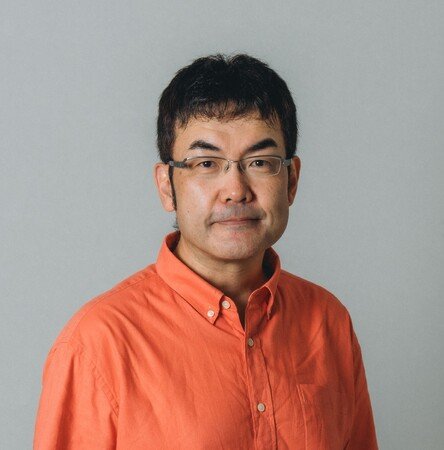
Following the award from France, I am very grateful to have been nominated for the New Poetry Translation Award in the United States. This is an anthology collection of poems that collects a series of poems in one volume, starting with “Utsu no Reki”, which was written over a decade after the Great East Japan Earthquake. It contains poems written in a variety of styles, from surrealist techniques to those that describe the years in plain language. What all of his works have in common is the seasonal landscape of Fukushima after the earthquake. I hope that people overseas will be able to understand the various thoughts and prayers of Fukushima people behind these words through the literature of poetry.
-Poet/Original author-
Ryoichi Wago
Born in Fukushima Prefecture in 1968. poets. Recipients include the Nakahara Chuya Award, the Bansui Award, the Hagiwara Sakutaro Award, the Minyu Prefectural Citizen’s Award, and the NHK Tohoku Culture Award. In 2011, he continued to publish a series of poems, “Poetry of Grass”, on Twitter from Fukushima immediately after the Great East Japan Earthquake, and in May of the same year, he was invited to perform at the Concergebouw in the Netherlands, one of the world’s three largest concert halls, and conveyed his feelings about Fukushima through a reading. . In July 2017, her collection of poems “Poetry of Gravels” was translated and published in France and won the first Nyunk Review Poetry Award. This was the first time in the history of Japanese literary circles that the book won a poetry collection award in France, and it attracted a lot of attention both domestically and internationally.
-Translator-
Judy Halebsky
Born in Nova Scotia, Canada in 1974. Professor at Dominican University of California and director of the university’s MFA Creative Writing Program. Lives in Oakland, California. His major publications include Spring and a Thousand Years (Unabridged), 2020, Tree Line, 2014, Sky=Empty, 2010, and the New Issue. Awarded a Prize.
Ayako Takahashi
Born in 1970. Professor at Hyogo Prefectural University. His publications include Ambience: Environmental Poetics of the
Anthropocene (Shichosha, 2022) and Reading Gary Snyder: Place, Myth, and Ecology (Shichosha, 2018). Her edited and translated books include “Modern American Women’s Poetry Collection” (co-translated with Satoko Ogawa, Shichosha, 2012). Received the Kurita Water and Environmental Science Research Excellence Award (Kurita Water and Environmental Science Foundation, 2010). International Society for Cultural Expression Award (International Society for Cultural Expression, 2020).
-Interlocutor-
Brenda Hillman
Born in Arizona, USA in 1951. Lives in Berkeley, California. Professor at St. Mary’s University of California. An active creative and social activist in the literary community of the California Bay Area. His poems are characterized by poems about California’s landscape, nature, creatures, environmental justice, and human rights violations. His works Cascadia (2001) and Practical Water (2009) won the Los Angeles Times Book Award.
Contact information for media inquiries regarding this matter [Tokuma Shoten PR Desk] C-Publishing Service Co., Ltd. Public Relations Department pr★c-pub.co.jp (Please convert ★ to @ before sending)
